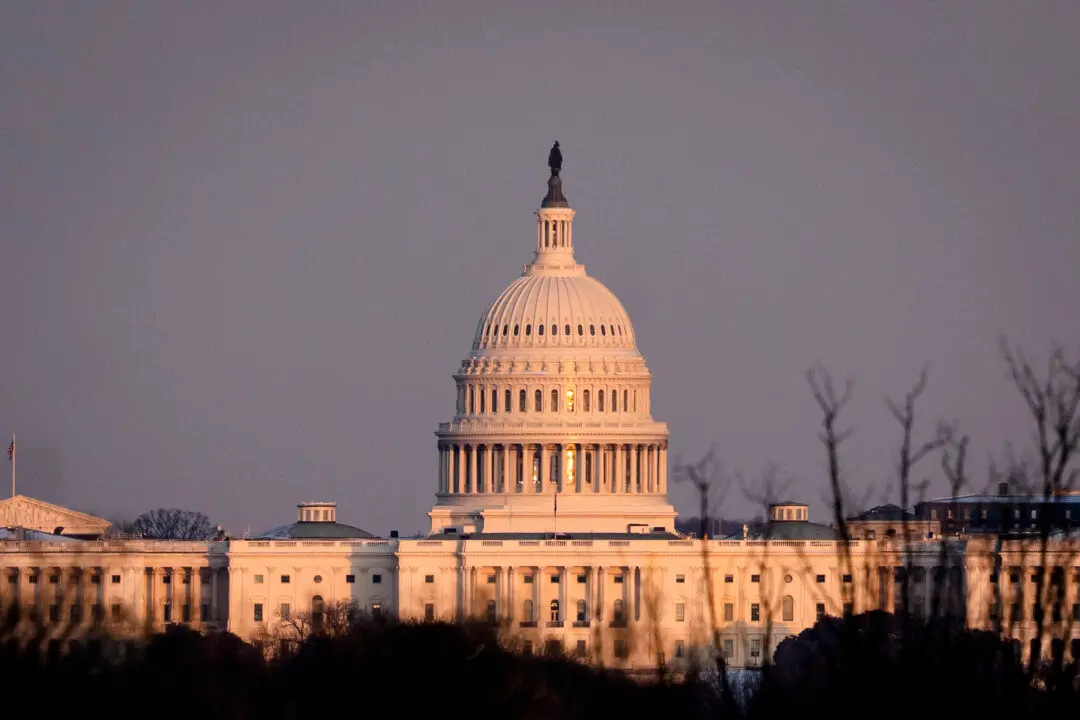Sen. Joe Manchin (D-W.Va.) marked the one-year anniversary of the passage of the Inflation Reduction Act with a promise to “push back” against the Biden administration’s efforts to “implement ... a radical climate change agenda” through the legislation, which Mr. Manchin helped author.
The Inflation Reduction Act was a $744 billion budget reconciliation bill passed along party lines during the previous Congress when Democrats held the upper chamber by a single vote. Every single Republican opposed the bill, which was hammered out between Mr. Manchin and Senate Majority Leader Chuck Schumer (D-N.Y.) after Mr. Manchin had earlier blocked larger spending bills from advancing through the Democrat-controlled Congress.





